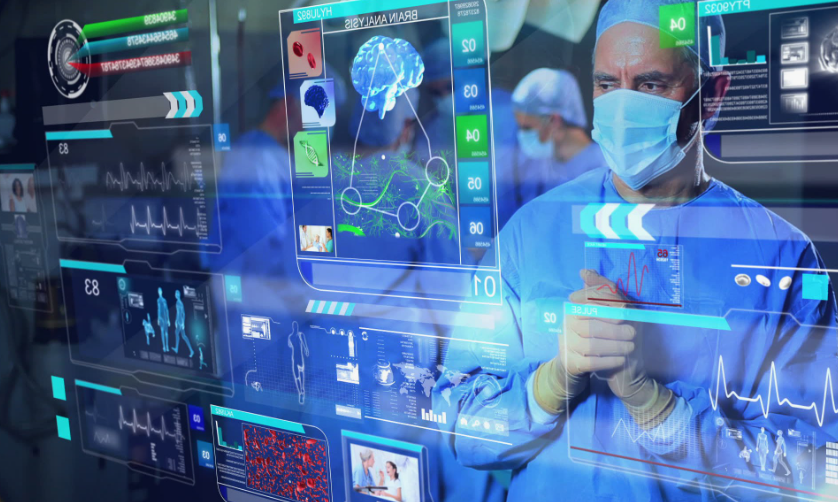Artificial intelligence (AI) has rapidly become a transformative force in the healthcare industry, revolutionizing patient care, improving operational efficiency, and enhancing diagnostic accuracy. Among the various AI-driven innovations, AI-powered assistants have emerged as essential tools for healthcare professionals and patients alike. These digital assistants are not only streamlining administrative tasks but also providing personalized care, improving patient outcomes, and supporting medical decision-making. As the healthcare landscape continues to evolve, the role of AI assistants will become even more critical in shaping the future of healthcare.
In this article, we explore how AI assistants in healthcare are enhancing services, boosting patient care, and addressing some of the industry’s most pressing challenges.
1. Streamlining Administrative Tasks
One of the most significant ways AI assistants are transforming healthcare is by automating administrative tasks, allowing healthcare professionals to spend more time focusing on patient care rather than paperwork and scheduling.
- Appointment Scheduling and Reminders: AI assistants can handle appointment scheduling, send reminders to patients about upcoming visits, and even allow patients to reschedule or cancel appointments via voice or text commands. This reduces no-shows and improves patient flow, making healthcare facilities more efficient.
- Medical Billing and Coding: AI-powered systems are helping medical offices and hospitals streamline the billing and coding process. AI can quickly analyze patient records and match them to the correct insurance codes, reducing human error and speeding up the reimbursement process.
- Data Entry and Documentation: AI assistants can automate the process of entering patient data into Electronic Health Records (EHRs). Natural language processing (NLP) and machine learning algorithms can convert verbal dictations into structured data, saving clinicians time and reducing administrative burdens.
Example: AI systems like Nuance’s Dragon Medical One assist clinicians in transcribing patient notes quickly, allowing them to focus on direct patient care rather than on administrative tasks.
2. Enhancing Diagnostic Accuracy and Decision Support
AI assistants are not just administrative tools; they also play a key role in enhancing diagnostic accuracy and supporting clinical decision-making. By analyzing vast amounts of medical data, AI can provide insights that assist healthcare providers in making better-informed decisions.
- Clinical Decision Support: AI assistants can analyze patient data in real time to provide actionable insights for healthcare providers. For example, AI can assess lab results, medical histories, and imaging data to suggest potential diagnoses or recommend treatment options based on the latest research and clinical guidelines.
- Early Detection and Risk Prediction: AI-powered systems can help identify early signs of conditions like heart disease, diabetes, or cancer. By analyzing patterns in medical data, these systems can predict the likelihood of certain health conditions developing, allowing for earlier intervention and preventative care.
Example: IBM Watson Health uses AI to analyze clinical data and provide oncologists with treatment recommendations for cancer patients, significantly improving decision-making and treatment outcomes.
3. Virtual Health Assistants for Patient Engagement
In recent years, virtual health assistants have become increasingly common, offering personalized, 24/7 support to patients. These AI-driven systems enhance patient engagement by providing easy access to health information, offering medication reminders, and assisting with post-treatment care.
- Medication Management: AI assistants can remind patients to take their medications on time, track doses, and even send alerts if a prescription needs to be refilled. This can help patients manage complex medication regimens and prevent missed doses, improving adherence to treatment plans.
- Symptom Checkers: AI assistants can assess symptoms reported by patients, offering preliminary advice or directing them to the appropriate level of care. By using natural language processing, these systems can understand and analyze a patient’s input, offering helpful information or connecting patients to the right healthcare professional.
- Mental Health Support: Virtual assistants like Woebot are being used to provide mental health support, offering therapeutic conversations and emotional support to patients dealing with stress, anxiety, or depression. These AI-powered systems provide a safe space for patients to talk and help them manage their mental well-being in between therapy sessions.
Example: Ada Health, an AI-powered symptom checker, helps patients assess their symptoms and receive recommendations for appropriate treatment, acting as a first step before seeking professional medical care.
4. Telemedicine and Remote Care
Telemedicine has gained significant traction in recent years, and AI assistants are helping to expand access to healthcare, especially in remote or underserved areas. Through telehealth platforms, AI is playing an essential role in enabling virtual consultations and monitoring patients remotely.
- Virtual Consultations: AI assistants can assist in telemedicine consultations by triaging patient inquiries, scheduling virtual appointments, and gathering preliminary information before a video or phone consultation with a healthcare provider. This allows doctors to be better prepared for the consultation, improving the efficiency of virtual care.
- Remote Patient Monitoring: AI systems can be used to monitor patients’ vital signs, symptoms, and progress remotely. For example, wearable devices can track heart rate, blood pressure, glucose levels, and other health metrics, sending the data directly to healthcare providers for ongoing monitoring. AI can analyze this data in real-time, alerting doctors to any significant changes that may require attention.
Example: Platforms like Teladoc Health use AI to facilitate virtual consultations and remote monitoring, improving access to care for patients who may not otherwise have been able to visit a doctor in person.
5. Personalized Care Plans and Treatment Recommendations
AI assistants are helping to personalize healthcare by tailoring treatment plans to individual patients. By analyzing genetic information, lifestyle factors, and medical histories, AI can recommend highly personalized care strategies that are more likely to lead to better health outcomes.
- Precision Medicine: AI systems can help doctors design treatment plans based on a patient’s unique genetic profile. This is especially relevant in areas like oncology, where AI can help identify the most effective treatment options based on the genetic markers of a patient’s tumor.
- Chronic Disease Management: AI assistants can help patients with chronic conditions like diabetes, asthma, or hypertension manage their health more effectively. By monitoring key health indicators and providing real-time feedback, AI can suggest adjustments to medication, lifestyle, or diet to improve patient outcomes.
Example: Tempus, a technology company using AI in precision medicine, analyzes clinical and molecular data to help doctors make more informed decisions about cancer treatment based on a patient’s unique genetic information.
6. Improving Healthcare Access and Equity
AI assistants are helping to address issues related to healthcare access and equity by providing services that were once unavailable to many, especially in underserved or rural areas.
- Access to Specialist Care: AI-powered telemedicine platforms and virtual assistants allow patients to access healthcare services that may not be available locally. By connecting patients to specialists via remote consultations, AI helps bridge the gap in healthcare access.
- Language and Cultural Barriers: AI-powered translation and language support tools can help overcome language barriers in healthcare, ensuring that patients from diverse backgrounds can communicate effectively with healthcare providers.
Example: AI assistants like Google Translate are helping healthcare providers communicate with patients who speak different languages, improving the quality of care in multicultural and multilingual settings.
7. AI for Clinical Trials and Drug Development
AI assistants are playing a pivotal role in clinical research, helping to speed up the drug development process and make clinical trials more efficient.
- Patient Recruitment: AI can analyze patient data to help identify individuals who are eligible for clinical trials, streamlining the recruitment process and ensuring that trials are diverse and inclusive.
- Data Analysis: AI can analyze vast datasets to identify potential new drug candidates, speeding up the process of drug discovery. By modeling how different compounds interact with the body, AI can help researchers develop safer, more effective medications.
Example: Atomwise, a company using AI to analyze molecular structures, has been involved in accelerating the drug discovery process, including for diseases like Ebola and cancer.
Conclusion
AI assistants are increasingly becoming a cornerstone of the healthcare industry, streamlining administrative tasks, improving diagnostic accuracy, and enhancing patient care. From providing virtual health consultations to monitoring chronic conditions and offering personalized treatment plans, these intelligent systems are making healthcare more efficient, accessible, and patient-centered. As AI technology continues to evolve, the role of AI assistants in healthcare will only grow, driving innovations that improve both the quality and accessibility of healthcare services worldwide.


